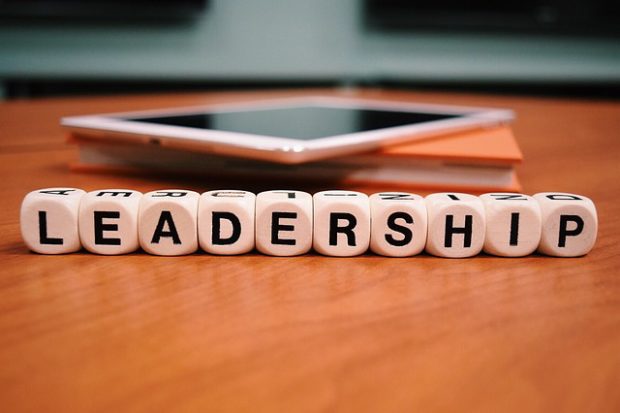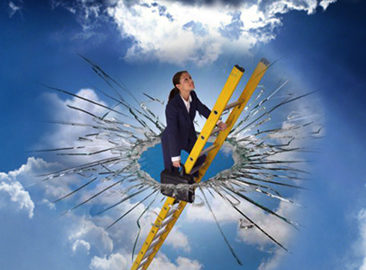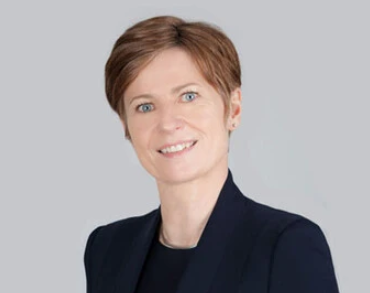What Does a Good Leader Look Like? – An Interview with Nicky Moffat

Nicky Moffat, listed in Champions Speakers’ Top 11 Teamwork & Leadership Speakers to Unite Your Audience, is an expert in leadership. As the highest ranking woman in the British Army, she discovered the power of good leadership, and the devastating impact of de-motivating leaders. In this exclusive interview with Ms Career Girl, Nicky reveals what a good leader looks like to her and the biggest hurdles she overcame in her military career.
What does a good leader look like to you?
“That’s a really interesting question. I think for me, leadership isn’t about rank, status or position, or being the director of this or the head of that, it’s about your ability to take other people with you on a journey.
“I suppose, in essence, that means you have to have a clear vision, a strategy, resourced plans. But the absolutely critical thing in a leader is the ability to ensure that those things are communicated really effectively to the individuals who are going to implement the plans, and importantly, to empower the individuals who are, frankly, in the engine room of the organisation.”
What is your top tip for leading and managing transformational and cultural change?
“Change impacts people in different ways. Some people will respond with shock, panic, fear or paralysis, whereas others will be more forward leaning. Now, my response to change is actually very forward leaning. I like to understand what that change means. I like to think about what it might mean for my organisation, what it might mean for my people. And I want to engage with it to then see if I can help shape [the] change.
“And then, of course, a leader has got to develop understanding amongst their people [and] encourage them to own the change. I think this is the key thing to change. About 70% of change programmes fail, and I think principally they fail not because of the strategy or vision, they fail because they’re not implemented, or they’re poorly implemented, or they’re not resourced.
“Get your people to own [change], understand it and engage with it at the lower levels and then start growing things not just from the top down, but also from the bottom up.”

What was the biggest challenge you faced in the military and how did you overcome it?
“That’s a really interesting one. The biggest challenge, I would say, was actually facing my own demons. I joined the army in 1985. So, it was very much designed by men for men back then. It wasn’t until I was a Captain, and I was on that key career course, that I started to feel a loss of confidence.
“Inevitably, part of that was because the environment around me was different to me. It was a male dominated environment. I found as I sat around the syndicate room table, nine men and me, I started to feel a degree of intimidation. Not from the men, but from the environment. The scale of the challenge to compete alongside them, to work alongside them and to establish myself as a credible and capable Military Officer.
“I, for whatever reason, felt they knew more than I did. Now, part of that was because they had much wider opportunities within the Army, so they could serve in the engineers, the gunners, the infantry and so on. I, at the time, was limited to personnel and administrative roles. So I had to overcome that, that sense that I knew less.
“I did that by going away and really armouring my knowledge so that when I came in the following week, I could genuinely contribute to the syndicate discussions and conversations. So, knowledge absolutely helped me transform the way I was feeling.
“It grew my confidence. It grew my credibility within the group. And then, of course, it became this marvellous, virtuous cycle of things getting better and better and better!”
In 2009, you became the highest-ranking woman in the British army. From your experience of working in a male dominated environment, how can employees create workplaces that are truly diverse and inclusive?
“I think the first thing that’s really important if you want a diverse and inclusive workplace is to get beyond the words on a page, the equality and diversity statement. It’s important to get beyond that and ensure that in every area of the business you are really meaning what you say.
“Businesses have been talking for a very, very long time about greater diversity, women on boards, you know, the range of issues. If progress isn’t being made, there’s a reason why, and the reason in my mind is because whilst there is a policy, the implementation isn’t truly being pushed through.
“It’s certainly not because there aren’t enough great women out there! It absolutely isn’t in my own world, in the military.
“To give you an example, in the military, there are promotion boards. So, around the table you’ve got a Chair – I was the Chair of my branch boards – and then I would have five or six of my Officers around the table who would read all of the appraisal books of the officers who were eligible for promotion.
“Now, of course, that sounds like a great process – and actually, it is. But the potential weakness in the process, is the biases of the people around the table. They would favour the people who worked in their area of responsibility, they would perhaps score one thing higher than another, which wasn’t necessarily what we were looking for.
“So, having spent some time reflecting, discussing and actually helping to train the people around the table, if I felt that someone had too much subjective bias rather than objectivity then I remove them from the process, put somebody else in who I thought could be more objective.
“What that meant was that we still had plenty of very capable men coming through, but we also had capable women coming through too. And it wasn’t just about gender. We had people coming through who were both generalists and specialists, and from different areas of my own organisation.”

What message do you have for women wanting to break into male dominated environments?
“I think the first thing I would say is, it’s really important to fit in. I would say that to a man too. When you’re starting out in your first job or seeking to join another company, industry or sector, then fitting in is really important. The second thing – I would say this to a man too – you’ve got to master your brief.
“I know that’s masculine language, but the bottom line is you’ve got to know your stuff. So that leads me onto contribution, it’s really important to make an impact, make your mark. And a lot of that comes from contribution to the debate, asking questions, being visible. I don’t mean that in a pointy elbowed type of way. It’s just really important to engage and add value.
“The next thing I would say is seek out opportunities. You might find yourself in a world where the opportunities aren’t coming in your direction. So, find ways to evidence your capability to people in positions of responsibility or power. That might mean seeking out a mentor or someone who’s going to sponsor you or support you, who will speak up for you behind closed doors.
“In my experience, and certainly in the military, I think women are less pushy than men. When I was working in the Army’s personnel centre, there was one guy in particular who was always putting himself forward and saying, ‘I’d like that job’, or ‘I should be promoted’.
“The conversation initially when he started doing that was, ‘so and so is pushing for another promotion again’, but there wasn’t a sense that he was necessarily the person who should be promoted. And then, after a few months, the conversation changed to, ‘we must get this chap a job at the next rank’.
So, I think it’s just useful to know that if you’re idling along and somebody else has got their foot on the gas alongside you, in terms of trying to own and promote their own career, then they’ll fly past you and you’ll be held back.
“Look for and take those opportunities! And certainly don’t let others patronise or hold you back because you’re the only woman in the team. Make the tea or take the notes – you know, take your fair share of doing that – but don’t fall into the trap of always being the person who does those things.”
Nicky Moffat

Nicky’s first career spanned 27 years in the Armed Forces, serving in the Field Army as well as in strategy, policy and finance roles in Army Headquarters and the Ministry of Defence. As a private secretary, she worked at the heart of the Government, supporting the Secretary of State for Defence during fast-moving operations in Iraq, Afghanistan, Sierra Leone and Cumbria (during a ‘Foot and Mouth’ crisis). Her expertise and insights as a leader were developed throughout a range of ‘command’ roles, as a Training Company Commander, Training Regiment Commander and Director of her specialism. In her most significant leadership role, she led some 4,500 soldiers within the Army’s personnel and finance function.
This post was authored by Sophie Wheeldon
Sophie Wheeldon is a Celebrity PR Executive at The Champions Speakers Agency, an industry-leading speakers bureau that works closely with the world’s most influential figures from business, technology, politics, sport, the military, and more to deliver keynotes that inform, engage and inspire.


